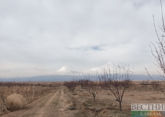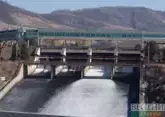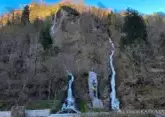On May 7, Vladimir Putin signed an executive order on national goals and strategic objectives for the development of the Russian Federation through to 2024, focusing on environmental issues, including the creation of an effective waste management system, improving the quality of drinking water, improving the ecology of industrial cities. The experts of the All-Russia People's Front spoke about their initiatives, which were sent to the Russian Ministry of Natural Resources and the Environment to be included in the national project "Ecology". The initiatives should help the effective implementation of the new presidential "May Decree".
Coordinator of the All-Russia People's Front's Public Monitoring Center on problems of ecology and forest protection, First Deputy Chairman of the Duma Committee on Economic Policy, Industry, Innovative Development and Entrepreneurship Vladimir Gutenev told Vestnik Kavkaza about the waste situation in the North Caucasus Federal District.
- The "General cleaning" project was launched last January due to a large number of citizens' appeals concerning illegal dumping and unsatisfactory work of disposal sites. The main tool of the project was the website "Interactive map of dumps", where people can report an illegal dump. How do these projects work in the NCFD?
- Of course, while holding events in various regions of Russia, the All-Russia People's Front faces different characteristics. What is characteristic of the north-west, Siberia and Ural, is not a priority for Central Russia, for the North Caucasus. But there are a number of features in the implementation of such important projects as "General cleaning" and "Interactive map of dumps." And we were somewhat perplexed about the high efficiency, that is, the number of found and eliminated illegal dumps. After a closer analysis of the situation, we found that a very small number of these dumps are revealed in the regions of the North Caucasus. On the one hand, there are cultural features and mentality - the North Caucasus is more concerned with environment. The number of dumps there is maybe even lower than in other regions. As for the identified dumps, there are a number of reserves that should be used. Therefore, an interactive map of landfills requires more work.
- What is the idea of a "green shield"?
- "Green Shield" involves the creation of territories with a special regime for nature management not only around megalopolises, but around all Russian cities. It was a truly national initiative, because we collected more than 100 thousand signatures in a month, which served as a legislative initiative as well. The 2017 amendments allowed us not only to introduce a special regime in urban forests, suburban forests, forest and park protection zones, but also to create a framework that is necessary for the formation of a "green shield", supplement it with such an important component as landscape areas, wetlands. The point is that there should not be fragmented islets of greenery around cities, but there should be a solid massif where nature would be protected by law and the government. Regions that are actively involved in this project make significant adjustments to the development of industrial development zones and housing construction. Often this encourages the recultivation of objects that are not in very good condition. We see that "a soft underbelly" of large cities hides abandoned enterprises, with non-functioning wastewater treatment facilities with electric power. Effective leaders of federal entities reclaim unclaimed capacities, instead of developing capacities in new territories. Such a master's approach indicates that "green shields" have started to work.
But there are regions in which the executive branch did not support the All-Russia People's Front's initiative to create "green shields" - forest-park green belts. These are four regions, including Kabardino-Balkarian republic. We hope that we will be able to convince the executive that it is necessary to change their decision. In addition, there are regions where the initiative was also rejected, but the Tyva Republic, Karachaevo-Cherkessia and Saratov region said they would consider the situation and most likely support the initiative.
It is important to form capacities for processing both the existing waste stream and accumulated damage within the framework of the public-private partnership. And we believe that resort towns, including the Caucasian Mineral Waters, should become pilot regions that will introduce the best available technologies on their territory in order to make these lands even more attractive for recreation.










